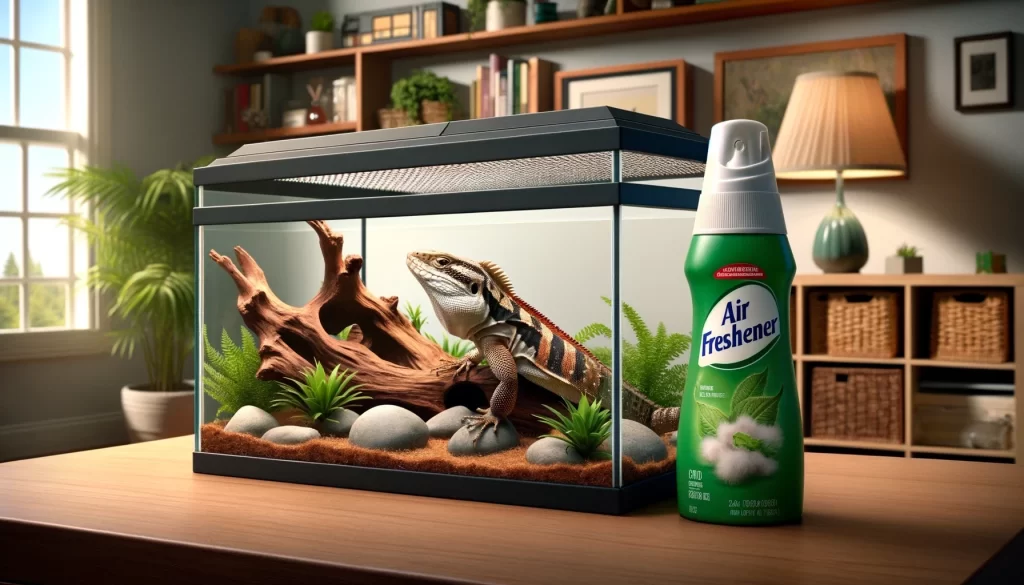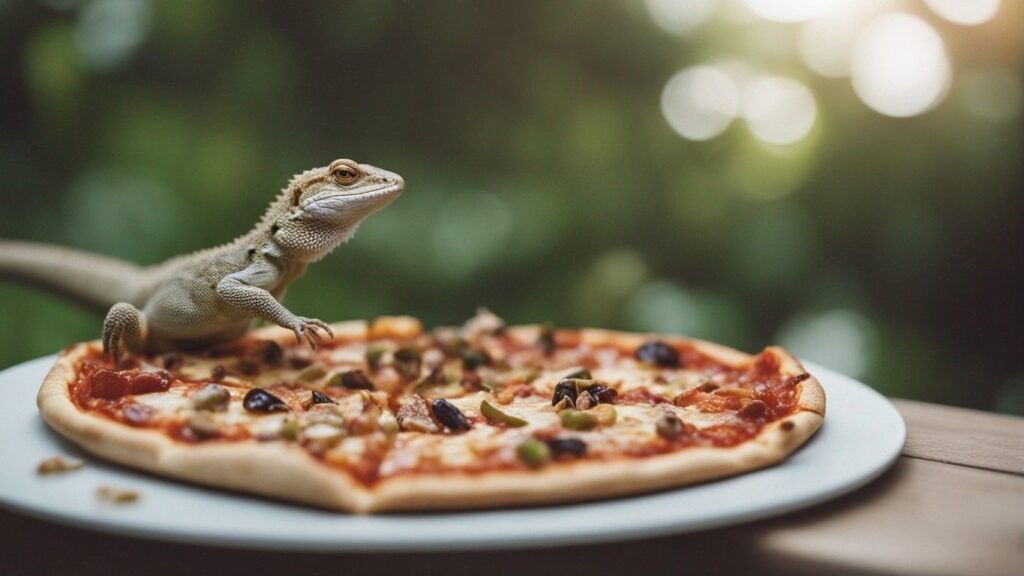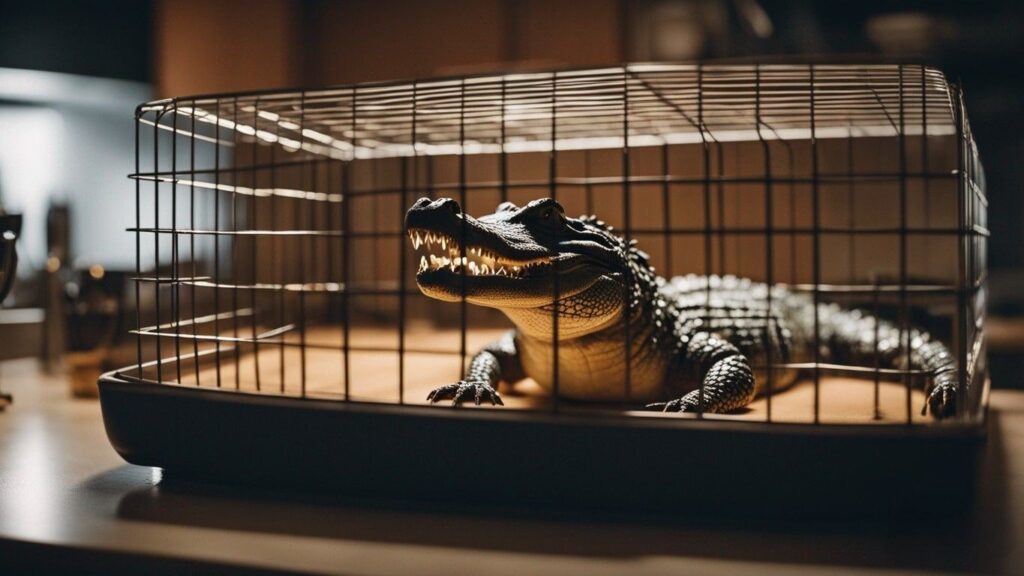
So you’re thinking about getting a pet lizard, but you’re wondering, do pet lizards smell? Well, this article has got you covered.
We’re going to take a closer look at the topic and discuss whether or not lizards have a distinct odor.
Whether you’re a reptile enthusiast or simply curious, let’s uncover the truth about pet lizards and their potential “fragrance.”
Many people are curious about whether pet lizards have a distinct smell. The truth is, while lizards do have natural odors, they can also develop unpleasant smells due to various factors.
In this article, we will explore the different factors that can affect the smell of pet lizards and discuss the potential causes of unpleasant odors. Let’s dive in!
Factors Affecting the Smell of Pet Lizards
Species Variations
Different species of lizards have their own unique scent profiles. While some species may have a stronger natural odor than others, it’s important to note that this is not necessarily an unpleasant smell. The natural scent of a lizard can vary depending on its species, and some people may even find it pleasant.
Individual Differences
Just like humans, lizards have their own unique body chemistry. This means that even within the same species, different lizards may have slightly different smells. These individual differences can be influenced by factors such as the lizard’s diet, overall health, and genetics.
Enclosure Conditions
The conditions of the lizard’s enclosure can play a significant role in determining its smell. If the enclosure is not cleaned regularly and maintained properly, odors can build up over time. We will discuss poor hygiene and dirty enclosures in more detail later in the article.
Environmental Factors
The overall environment in which the lizard is kept can also impact its smell. Factors such as humidity, temperature, and ventilation can affect the odor of a lizard’s enclosure. For example, inadequate ventilation can lead to the buildup of odors, while excessive humidity can create a damp and musty smell.
Natural Odors of Lizards
Pheromones
Lizards, like many other animals, use pheromones to communicate with each other. Pheromones are chemical signals that can convey information such as the lizard’s reproductive status, territorial boundaries, or presence of danger. These natural odors are an essential part of a lizard’s communication system and are not necessarily unpleasant.
Scent Marking
Lizards also engage in scent marking behaviors to establish their territory or attract mates. By leaving their scent on rocks, branches, or other objects in their environment, lizards communicate their presence to other individuals. This natural odor is a normal part of a lizard’s behavior and does not indicate poor hygiene or health issues.
Territorial Defense
In some cases, the natural odor of a lizard may become more pronounced during times of territorial defense. When threatened or defending their territory, lizards may release certain chemicals that can result in a stronger odor. This is a natural response and does not necessarily indicate any underlying health problems.
Species-Specific Odors
Certain lizard species have distinct natural odors that are unique to their species. These odors can be a result of their diet, their natural habitat, or other factors specific to the species. While these odors may not always be pleasant to humans, they are a normal part of a lizard’s natural biology.
Potential Causes of Unpleasant Smells in Pet Lizards
Poor Hygiene and Dirty Enclosures
One of the most common reasons for unpleasant smells in pet lizards is poor hygiene and dirty enclosures. If the enclosure is not cleaned regularly, bacteria and waste can accumulate, leading to foul odors. It is essential to maintain a proper cleaning schedule and remove any fecal matter, uneaten food, or decaying organic material from the enclosure.
Bacterial or Fungal Infections
In some cases, a lizard may develop bacterial or fungal infections that can cause unpleasant smells. These infections can occur on the skin, in the mouth, or even in the digestive tract. If you notice any signs of infection, such as changes in skin color, abnormal behavior, or a strong odor, it is important to consult a reptile veterinarian for proper diagnosis and treatment.
Digestive Issues or Impactions
Digestive issues and impactions can also contribute to unpleasant smells in pet lizards. If a lizard is not properly digesting its food or has a blockage in its digestive system, it can lead to the buildup of gases and the production of foul odors. Ensuring a proper diet and providing appropriate environmental conditions can help prevent these issues.
Illness or Disease
Just like any other animal, lizards can experience illness or disease that may affect their overall body odor. If you notice any changes in your lizard’s behavior, appetite, or physical appearance, it is important to seek veterinary attention. Illness or disease can sometimes manifest as a strong, unpleasant odor.
Scent Gland Secretions
Some lizards have scent glands that produce secretions used for defense or communication. If these scent glands become overactive or infected, they can release a strong odor. Regular monitoring of your lizard’s scent glands and seeking veterinary help if necessary can help prevent any issues related to scent gland secretions.
Inadequate Ventilation
Inadequate ventilation in a lizard’s enclosure can contribute to the buildup of odors. Without proper air circulation, waste gases can accumulate, resulting in unpleasant smells. Ensuring that your lizard’s enclosure has sufficient airflow and providing proper ventilation can help prevent this issue.
Inadequate Cleaning of Waste
If waste is not promptly removed from the enclosure, it can lead to bacterial growth and the production of foul odors. Regularly cleaning and sanitizing your lizard’s enclosure, including removing any waste, is essential in maintaining a clean and odor-free environment for your pet.
Poor Hygiene and Dirty Enclosures
Insufficient Cleaning Frequency
To maintain a clean and odor-free enclosure for your lizard, it is important to establish a regular cleaning schedule. Depending on the size of the enclosure and the number of lizards, the frequency of cleaning may vary. However, as a general guideline, removing waste and cleaning the enclosure at least once a week is recommended.
Accumulation of Urine and Fecal Matter
Urine and fecal matter can quickly accumulate in a lizard’s enclosure, especially if not cleaned regularly. The organic matter in waste can break down and produce foul odors, as well as create a breeding ground for bacteria. Regularly removing solid waste and refreshing the substrate can help prevent odor buildup.
Decaying Food or Organic Material
If any food items are left uneaten in the enclosure, they can begin to rot and create unpleasant smells. Additionally, decaying organic material, such as shed skin or old bedding, can also contribute to odor issues. Ensuring that all food items are consumed or removed promptly and cleaning out any decaying organic material can help maintain a clean and fresh-smelling enclosure.
Bacterial Growth and Odor
Insufficient cleaning and maintenance can lead to the growth of bacteria in the enclosure. Bacterial growth can produce foul odors and pose a risk to the health of your lizard. Regularly sanitizing the enclosure using reptile-safe disinfectants and keeping the enclosure clean and dry can help prevent bacterial growth and associated odors.
Diet and Digestive System
Impact of Food Choices
The diet of your lizard can have an impact on its overall body odor. Certain foods, such as those high in protein or sulfur, can result in stronger-smelling waste. Additionally, feeding your lizard a varied and balanced diet can help promote optimal digestion and reduce the likelihood of digestive issues that may lead to unpleasant smells.
Poor Digestion and Malnutrition
If your lizard’s digestive system is not functioning properly, it can result in poor digestion and nutrient absorption. This can lead to smelly and loose stools, as well as an overall unhealthy odor. Ensuring that your lizard is receiving a proper diet tailored to its species and providing appropriate supplements can help promote healthy digestion and reduce unpleasant smells.
Excessive Protein Intake
While protein is an essential part of your lizard’s diet, excessive intake can result in smelly waste and digestive issues. Some lizards may be prone to overeating protein-rich foods, such as insects. Monitoring your lizard’s diet and ensuring that protein intake is balanced and appropriate for its species can help prevent odor-related issues.
Overfeeding and Food Rotting
Overfeeding your lizard can result in the accumulation of undigested food in the digestive tract, leading to the production of foul odors. Additionally, if any food items are left uneaten for an extended period, they can begin to rot and create unpleasant smells. Feeding your lizard an appropriate amount of food and removing any uneaten items promptly can help prevent these issues.
Infected or Diseased Lizards
Respiratory Infections
Respiratory infections are common in lizards and can result in a distinct and unpleasant odor. If your lizard is displaying symptoms such as wheezing, coughing, excessive mucus production, or difficulty breathing, it may be experiencing a respiratory infection. Prompt veterinary attention is essential to properly diagnose and treat these infections and prevent further complications.
Skin Infections
Skin infections can also contribute to unpleasant smells in pet lizards. Symptoms of a skin infection may include redness, swelling, lesions, or an abnormal odor in the affected area. If you notice any signs of a skin infection, it is important to seek veterinary care as soon as possible.
Oral Infections
Oral infections, such as stomatitis or mouth rot, can lead to foul-smelling breath in lizards. These infections can be caused by bacteria or fungi and may result from poor oral hygiene or injuries to the mouth. Treatment should be sought promptly to prevent further complications.
Digestive Tract Disorders
Disorders affecting the digestive tract, such as parasites or impactions, can contribute to unpleasant odors in pet lizards. These issues can disrupt the normal function of the digestive system and result in foul-smelling waste. Regular veterinary check-ups, proper husbandry, and appropriate feeding practices can help prevent digestive tract disorders.
Inadequate Ventilation
Limited Air Circulation
If a lizard’s enclosure has limited airflow, odors can become trapped and accumulate. This can result in a stale or foul-smelling environment. Providing proper ventilation, such as through the use of vents or fans, can help ensure sufficient air circulation and prevent odor buildup.
Ammonia Buildup
Inadequate ventilation can also lead to the buildup of ammonia in the enclosure. Ammonia is a byproduct of waste breakdown and can produce a strong and unpleasant odor. Regularly cleaning the enclosure and providing proper ventilation can help dissipate ammonia and reduce associated odors.
Confinement of Odors
If the enclosure is small and poorly ventilated, odors can become confined and concentrated. This can result in a stronger and more noticeable smell. Providing a spacious enclosure with adequate ventilation can help prevent the confinement of odors and create a healthier environment for your lizard.
Skin Shedding Process
Increased Skin Odor during Shedding
During the shedding process, lizards may produce a stronger odor. This is due to changes in the composition of the skin as it prepares to shed. The odor is typically temporary and should dissipate once the shedding process is complete.
Stuck or Incomplete Shedding
If a lizard is unable to shed its skin properly, it can lead to the accumulation of dead skin cells. This can create an unpleasant smell and may also be a sign of an underlying health issue. If you notice that your lizard is having difficulty shedding or has incomplete sheddings, it is important to seek veterinary attention.
Retained Spectacles
Lizards have a specialized scale called a spectacle that covers their eyes. Occasionally, these spectacles may become retained or not shed properly. This can result in the accumulation of debris, bacteria, and unpleasant odors around the eyes. If you notice any issues with your lizard’s spectacles, it is important to consult a reptile veterinarian for appropriate care.
Reproductive Behavior
Mating Season Pheromones
During the mating season, male lizards may release pheromones to attract females. These pheromones can result in a stronger odor that is specifically associated with mating behavior. This is a natural occurrence and should not be cause for concern.
Scent Marking for Courtship
Lizards may engage in scent marking behaviors as part of their courtship rituals. By leaving their scent on objects in the environment, they communicate their availability and readiness to mate. These scent markings can sometimes result in stronger odors, but they are a normal part of the lizard’s reproductive behavior.
Sexual Dimorphism and Related Odors
In some lizard species, males and females may have distinct scent profiles. This can be due to hormonal differences or other factors related to sexual dimorphism. These natural odors are a result of the lizard’s biology and are not necessarily unpleasant.
Final Thoughts
In conclusion, while pet lizards do have their own natural odors, they can also develop unpleasant smells due to various factors.
These factors include poor hygiene and dirty enclosures, digestive issues, infections or diseases, inadequate ventilation, the skin shedding process, and reproductive behavior.
Maintaining proper hygiene, providing a balanced diet, regular veterinary check-ups, and ensuring a clean and well-ventilated environment for your pet lizard can help prevent or minimize any unpleasant smells.
Remember to monitor your lizard’s overall health and seek veterinary attention if you notice any abnormal odors or changes in behavior.
By providing proper care and attention, you can ensure that your pet lizard remains happy, healthy, and odor-free.



